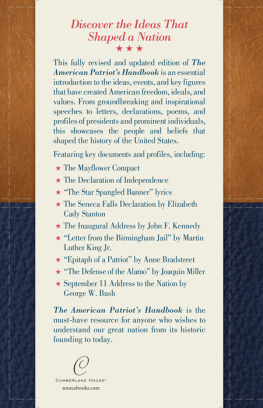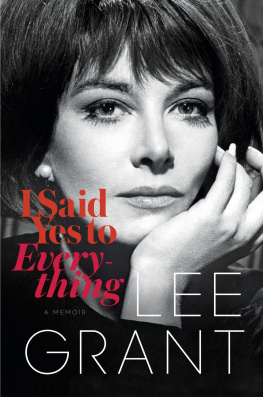TECHNOLOGY & JUSTICE
GEORGE GRANT

Copyright 1986 by George Grant
All rights reserved. No part of this publication may be reproduced or transmitted in any form or by any means, electronic or mechanical, including photocopy, recording, or any information storage and retrieval system, without permission in writing from the publisher.
Published by
House of Anansi Press Limited
1800 Steeles Avenue West
Concord, Ontario
L4K 2P3
Canadian Cataloguing in Publication Data
Grant, George, 191888
Technology and justice
Includes bibliographical references.
ISBN 0-88784-516-9
1. Technology - Moral and ethical aspects.
I. Title.
BJ59.G73 1986 170 C86-094778-5
Cover design: Leslie Styles
Computer illustration: Lee Wipper
Printed and bound in Canada
To R.S.G. and J.R.P.
sine quibus non
Preface
These writings centre around the modern paradigm of knowledge: behaviorist explanation in terms of algebra. This account is at the core of the fate of western civilisation. Because the conquest of human and non-human nature is at the heart of modern science, I describe that science as technological.
In the first and second essays, I have tried to show why we should think of this account of knowledge as a fate and not something which in our freedom we can control. Because I continue to find it so difficult to understand this destiny, I have tried to think in terms of the Spanish proverb: Take what you want, said God take it and pay for it. This obviously applies not only to individuals but to civilisations.
In this book, I have tried to think what we have taken and how we have paid for the discovery of that paradigm of knowledge. Under payment, I have singled out how such a paradigm has shaped our thinking about justice justice not only in the sense of this or that act, but in the sense of what we think justice itself to be. In the first two essays I deal with that question in a broadly theoretical way; in the last two, in terms of immediate practicality.
It will be the last two essays, I suspect, which will raise objections. In capitalist democracy, differences about practice are seen as important, while theoretical differences are seen as peoples private business. It is of the very nature of technology that this should be the case.
All that I write proceeds from sustained discussion with my wife. In that sense, she is the co-author of my writing and explicitly named such in the articles about euthanasia and abortion. Dennis Lee is a generous friend who gives of his precious time to help me to think and to write more clearly. Larry Schmidt has shown me much care and help over many years. Ann Wall and James Polk have taught me what a publisher should be. With their different souls, they combine to make being published a pleasure rather than a pain.
Some of these essays have appeared in quite different form elsewhere, and a list of acknowledgements with thanks is given at the back.
George Grant
August, 1986
Thinking About Technology
In each lived moment of our waking and sleeping, we are technological civilisation. Why is it best to characterise what we are encompassing, and are encompassed by, as technological? The answer can be seen in the very structure of the word. The current use of the word technology in North America lays before us the particular novelty of our world.
In distinction from the usage in English of technology and technologies, the Europeans have generally used technique and techniques, the former for the whole array of means for making events happen, the latter for the particular means. They have claimed that our usage confuses us by distorting the literal meaning. The word technology puts together the Greek word for art and the word for the systematic study of it, as the word biology puts together bios and logos. They claim our usage parallels a similar imprecision in English in which history means both the study and what is studied.
Nevertheless, although the European usage maintains verbal purity it does not evoke the modern reality as directly as ours. The very American neologism brings before us our novelty. When technology is used to describe the actual means of making events happen, and not simply the systematic study of these means, the word reveals to us the fact that these new events happen because we westerners willed to develop a new and unique co-penetration of the arts and sciences, a co-penetration which has never before existed. What is given in the neologismconsciously or notis the idea that modern civilisation is distinguished from all previous civilisations because our activities of knowing and making have been brought together in a way which does not allow the once-clear distinguishing of them. In fact, the coining of the word technology catches the novelty of that co-penetration of knowing and making. It also implies that we have brought the sciences and the arts into a new unity in our will to be masters of the earth and beyond.
The use of the word technique for that with which we have encompassed ourselves too easily leaves the implication that our understanding of what constitutes knowing and making is not radically different from that of previous civilisations. In fact, the modern technique may seem at first to suggest the same kind of meaning as what is given in the Greek techne, as if we have simply progressed in efficiency of making. We then attribute our greater efficiency to the modern scientists, who guaranteed the progress of knowledge by clarifying its sure methods, and through that objective knowledge achieved greater ability to make things happen. In this account of progressing continuity, we assume that our modern western will to be the masters of the earth was taken for granted in the techne of other civilisations. The time was not accidentally ripe; those peoples were not evolved enough to discover the sure path of science, which would have allowed them to realise that will to mastery.
With such implied histories of the race, we close down on the startling novelty of the modern enterprise, and hide the difficulty of thinking it. We close down on the fact that modern technology is not simply an extension of human making through the power of a perfected science, but is a new account of what it is to know and to make in which both activities are changed by their co-penetration. We hide the difficulty of thinking that novelty, because in our implied histories it is assumed that we can understand the novelty only from within its own account of knowing, which has itself become a kind of making.
Indeed the English word technology with its Greek parts, and at the same time the novelty of what is given in their combination, shows what a transformation has taken place in our sciences, our arts and their interrelation, from what they were in our originating civilisation from which the parts of the word come. It is very difficult to grasp what is given about art and science in the Greek writings, because we understand previous sciences as preparations for our own, and other accounts of nature as stumbling provisions for our objective understanding of it. Nevertheless, at the simple surface of the question, it is clear that what was known in the physics of the Greeks was not knowledge of the kind that put the energies of nature at their disposal, as does modern western physics. It is only necessary to read Needhams history of Chinese science to see that the same was true there. What is given in Sanskrit shows this to be equally true of the civilisation founded upon the Vedanta.













